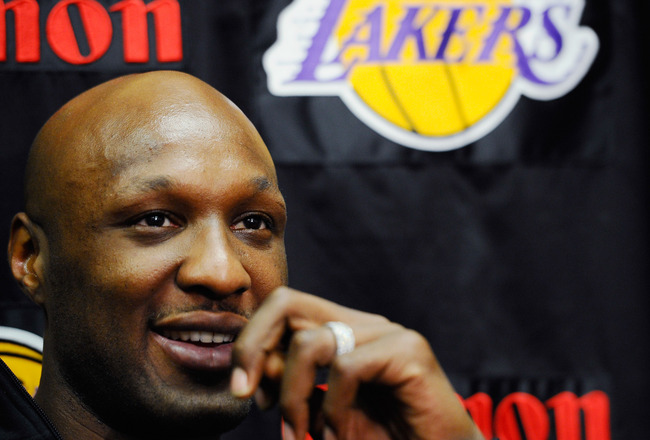The following article is a guest contribution from Mitchell S. Halpern, JD; Principal at O’Connor & Drew, P.C. Mr. Halpern has provided tax advice to professional athletes for over 25 years.
The case that was most responsible for the public’s awareness of IRS activity with respect to its examination of deductions claimed by professional athletes has been settled.
Lamar Odom and the IRS recently settled Odom’s tax court case, with Odom agreeing to a tax deficiency for the 2007 tax year in the amount of $7,827 plus interest. This is considerably less than the $87,000 originally reported as the amount the IRS billed Odom. A “victory” in anyone’s record book (note: while technically this settlement does not represent the “winning” of the case by Odom since the case was never tried, the author chooses to use poetic license in his use of the term “victory”).
As originally reported on many sports and tax blogs, the IRS billed Odom additional 2007 taxes stemming from his claiming the following deductions, which the IRS disallowed:
- $12,000 in fines levied by the NBA; and
- $178,337 for professional training and conditioning.
Many of the reports had “fun” with the fact that the tax court petition appeared to by filed by Odom himself, without representation of counsel. Odom hired tax counsel, Robert T. Leonard, shortly after filing the petition, and it is Leonard who is responsible for negotiating the settlement on Odom’s behalf.
According to a report by William P. Barrett on Forbes.com, the settlement between Odom and the IRS reflects an amount due attributable to the IRS also disallowing a deduction for the cost of Lakers tickets that Odom bought and distributed for “promotional reasons”.
This settlement does not create a legal precedent with respect to these matters, but it does reflect, in the author’s opinion, the current position of the IRS with respect to these items. The author has handled 10 IRS examinations of professional athletes over the past 2 years, several of which included filing petitions in tax court, and the results of this settlement are consistent with the results he has seen once the IRS has been provided with proper documentation. As a matter of fact, a deduction for tickets to a team’s games is an item that has been allowed upon examination, but sometimes you need to agree to the disallowance of a small item in order to settle the case and have the IRS agree to the larger deductions.
While the settlement of this case does provide guidance as to items the IRS might allow a professional athlete to deduct on his/her income tax return, it does not highlight the importance of being able to document the deductions claimed on the athlete’s tax return. Most of these types of examinations can be resolved fairly easily upon the submission of appropriate documentation, although some examiners may push back on certain deductions. Even those deductions on which the examiners push back can often be resolved by providing a solid argument as to why the expenses deducted are ordinary and necessary to the athlete’s line of business.
The biggest problems most often occur when the athlete does not respond to the notices or fails to respond in a timely manner. This often results in the examination being closed and taxes assessed based on the disallowance of all expenses. This results in the need to argue against the assessment of additional taxes in addition to having to provide documentation for the deductions. This might seem like a fine line to some, but it is often easier to argue the appropriateness of a deduction before a tax is assessed than afterwards. Also, the more time that passes, the more likely the need to file a tax court petition.
So go ahead and deduct those fines and fitness fees, but make sure that you can document the amounts paid, the dates paid and the business purposes of the expenses.
